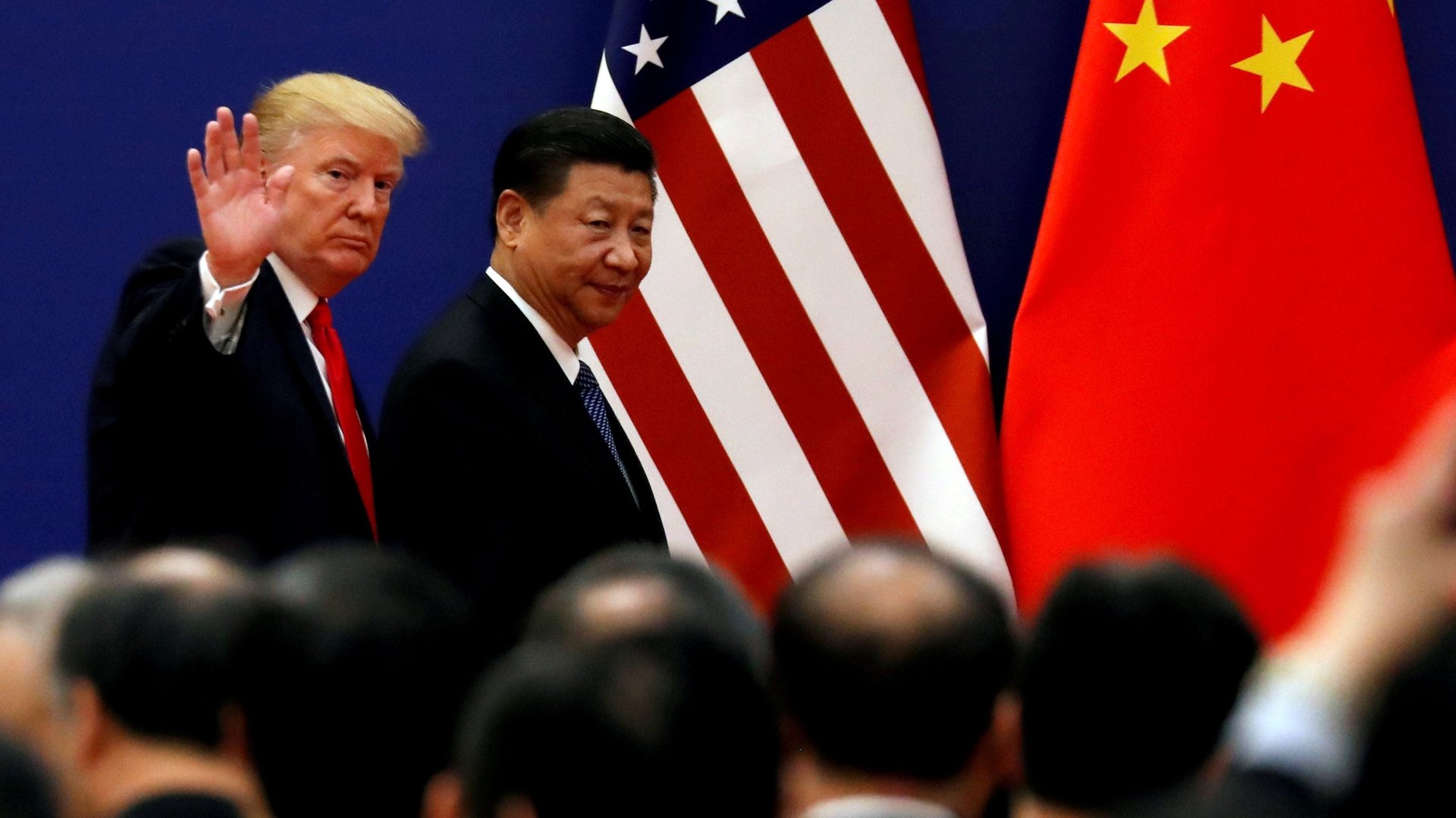Trump’s tariffs have wiped out a major US manufacturer’s corporate tax cut
US president Donald Trump’s trade wars are hurting American companies and threaten the stability of the global economy, a group of Fortune 500 CEOs told reporters in Washington, DC today.


US president Donald Trump’s trade wars are hurting American companies and threaten the stability of the global economy, a group of Fortune 500 CEOs told reporters in Washington, DC today.
Some companies are suffering more than others.
All of the gains that Indiana engine-maker Cummins received from Trump’s 2017 corporate tax cut will be lost this year to the extra tariffs the company now must pay, said Cummins CEO Tom Linebarger.
“The taxes from tariffs have now outgrown the benefits from the tax reform act,” Linebarger said at a meeting arranged by the Business Roundtable, an executive group that aims to influence policy. “Our net taxes are higher now.”
Linebarger spoke alongside JP Morgan CEO Jamie Dimon and IBM CEO Ginni Rometty. Dimon called the gathering an attempt to “educate” politicians and voters about the impact of the trade tariffs, as well as other White House policy.
The CEOs openly criticized the president’s reliance on tariffs as a diplomatic tool, and said the White House wasn’t taking corporate America’s advice on the situation. Linebarger said he was particularly alarmed that the White House mingled security policy and trade policy.
In order to roll out taxes on all steel and aluminum imports last year, for instance, Trump used a section of an obscure 1962 trade act that allows presidents to set tariffs if they think national security is at stake. Linebarger said the group “called the White House” about the policy. While he said officials took their calls and “listened,” they didn’t seem to have much impact.
“They make their own decisions,” he said.
Cummins, which makes engines and power systems for trucks and heavy equipment, will take a $150 million annualized hit from the tariffs, said Shannon Kiely Heider, the company’s director for international government relations. That totally wipes out the company’s gains from the tax cut, she told Quartz, which lowered the top tax rate for US corporations from 35% to 21%.
The group also addressed the ongoing trade war between the United States and China. Both consumers and business in both countries are now paying billions of dollars in tariffs. Sales of some US products to China, like soybeans, have plummeted. And the cost of some raw materials and finished good have spiked in the United States.
Linebarger called on the United States and China to resolve their trade differences. The idea that there can be a “Chinese world and a US world” that would somehow co-exist is not realistic, he said. “It would be incredibly damaging to the global economy.”
Trump and Chinese president Xi Jinping may meet at the end of June to discuss trade and other issues.
Cummins relies heavily on American employees to make engines for other markets, Kiely Heider said, and could be forced to lay off some of its nearly 60,000 employees. “Our US headcount is not supported by US trade alone,” she said.
The company is co-chairing a coalition to help push the new NAFTA deal through Congress as quickly as possible, but it could be months before that happens.
“We live in a state of instability,” she said.